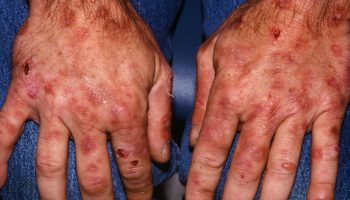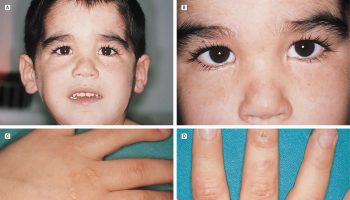Contents
STD testing
Sexually transmitted disease or “STD” also called sexually transmitted infections (STIs), are infections that are passed from one person to another by having sex with someone who has an infection. Sexually transmitted diseases (STDs) are usually spread during vaginal sex, oral sex, anal sex or skin-to-skin contact. But sometimes they can spread through other sexual contact involving the penis, vagina, mouth, or anus. This is because some STDs, like herpes and HPV, are spread by skin-to-skin contact. Your risk for catching sexually transmitted diseases (STDs) is higher if you have had many sex partners, have had sex with someone who has had many partners, or have had sex without using condoms.
Some STDs can be passed from a pregnant person to the baby, either during pregnancy or when giving birth. Other ways that STDs may be spread include during breastfeeding, through blood transfusions, or by sharing needles.
STDs can be caused by bacteria, viruses, or parasites. There are more than 20 types of STDs, including:
- Chlamydia
- Genital herpes
- Gonorrhea
- Hepatitis B
- Human immunodeficiency virus (HIV)
- Human papilloma virus (HPV) causing genital warts
- Pubic lice
- Syphilis
- Trichomoniasis
If you are sexually active, getting tested for STDs is one of the most important things you can do to protect your health. Make sure you have an open and honest conversation about your sexual history and STD testing with your doctor and ask whether you should be tested for STDs. If you are not comfortable talking with your regular health care provider about STDs, there are many STD clinics that provide confidential and free or low-cost testing. Below is a brief overview of STD testing recommendations 1.
- All adults and adolescents from ages 13 to 64 should be tested at least once for HIV.
- All sexually active women younger than 25 years should be tested for gonorrhea and chlamydia every year. Women 25 years and older with risk factors such as new or multiple sex partners or a sex partner who has an STD should also be tested for gonorrhea and chlamydia every year.
- Everyone who is pregnant should be tested for syphilis, HIV, hepatitis B, and hepatitis C starting early in pregnancy. Those at risk for infection should also be tested for chlamydia and gonorrhea starting early in pregnancy. Repeat testing may be needed in some cases.
- All sexually active gay, bisexual, and other men who have sex with men should be tested:
- At least once a year for syphilis, chlamydia, and gonorrhea. Those who have multiple or anonymous partners should be tested more frequently (e.g., every 3 to 6 months).
- At least once a year for HIV and may benefit from more frequent HIV testing (e.g., every 3 to 6 months).
- At least once a year for hepatitis C, if living with HIV.
- Anyone who engages in sexual behaviors that could place them at risk for infection or shares injection drug equipment should get tested for HIV at least once a year.
- People who have had oral or anal sex should talk with their healthcare provider about throat and rectal testing options.
STD testing near me
Although it may be embarrassing, if you are sexually active, getting tested for STDs is one of the most important things you can do to protect your health. You have many options for free or low-cost STD testing clinics near you. STD testing is available seven days a week at some locations, insurance is accepted at most locations, and payment is at a low cost or free and usually based on your ability to pay, based on your income and other factors. Follow this link to find an STD testing center near you https://www.cdc.gov/std/prevention/screeningreccs.htm
STD testing recommendations
Sexually transmitted diseases (STDs) don’t always cause symptoms or may only cause mild symptoms. So it is possible to have an STD and not know it. And even without symptoms, STDs can still be harmful and may be passed on during sex. For example, chlamydia can lead to problems that can cause women not to be able to have children (infertility). HPV can lead to cancer of the cervix or penis. Syphilis can lead to paralysis, mental problems, heart damage, blindness, and even death.
The Centers for Disease Control and Prevention (CDC) estimates there are 26 millions of new STD infections in the United States each year and approximately one in five people in the U.S. had an STD on any given day in 2018 2.
Anyone who is sexually active can get an STD. Below is a brief overview of STD testing recommendations.
Women
- Chlamydia
- Gonorrhea
- Syphilis
- Herpes
- Trichomonas
- HIV
- HPV and Cervical Cancer
- Women 21-29 years of age every 3 years with cytology
- Women 30-65 years of age every 3 years with cytology, or every 5 years with a combination of cytology and HPV testing
- Hepatitis B
- Hepatitis C
Pregnant women
- Chlamydia
- All pregnant women under 25 years of age
- Pregnant women 25 years of age and older if at increased risk
- Retest during the 3rd trimester for women under 25 years of age or at risk
- Pregnant women with chlamydial infection should have a test of cure 4 weeks after treatment and be retested within 3 months
- Gonorrhea
- All pregnant women under 25 years of age, and those 25 and older if at increased risk
- Retest during the 3rd trimester for women under 25 years of age or at risk
- Pregnant women with gonorrhea should be retested within 3 months
- Syphilis
- All pregnant women at the first prenatal visit1
- Retest at 28 weeks gestation and at delivery if at high risk (lives in a community with high syphilis morbidity or is at risk for syphilis acquisition during pregnancy [drug misuse, STDs during pregnancy, multiple partners, a new partner, partner with STDs])
- Herpes
- Routine HSV-2 serologic screening among asymptomatic pregnant women is not recommended. However, type-specific serologic tests might be useful for identifying pregnant women at risk for HSV infection and guiding counseling regarding the risk for acquiring genital herpes during pregnancy.
- Trichomonas
- HIV
- All pregnant women should be screened at first prenatal visit
- Retest in the 3rd trimester if at high risk (people who use drugs, have STDs during pregnancy, have multiple sex partners during pregnancy, have a new sex partner during pregnancy, live in areas with high HIV prevalence, or have partners with HIV)
- Rapid testing should be performed at delivery if not previously screened during pregnancy
- HPV and Cervical Cancer
- Pregnant women should be screened at same intervals as nonpregnant women
- Hepatitis B
- Test for HBsAg at first prenatal visit of each pregnancy regardless of prior testing; retest at delivery if at high risk
- Hepatitis C
- Pregnant women should be screened for hepatitis C
Men who have sex with women
- Chlamydia
- Gonorrhea
- Syphilis
- Herpes
- HIV
- All men aged 13-64 years
- All men who seek evaluation and treatment for STDs
- Hepatitis B
- Men at increased risk (i.e., by sexual or percutaneous exposure)
- Hepatitis C
- All adults over age 18 years should be screened for hepatitis C
Men who have sex with men
- Chlamydia
- At least annually for sexually active men who have sex with men at sites of contact (urethra, rectum) regardless of condom use
- Every 3 to 6 months if at increased risk (i.e., men who have sex with men on PrEP, with HIV infection, or if they or their sex partners have multiple partners)
- Gonorrhea
- At least annually for sexually active men who have sex with men at sites of contact (urethra, rectum, pharynx) regardless of condom use
- Every 3 to 6 months if at increased risk
- Syphilis
- At least annually for sexually active men who have sex with men
- Every 3 to 6 months if at increased risk
- Herpes
- HIV
- At least annually for sexually active men who have sex with men if HIV status is unknown or negative and the patient or their sex partner(s) have had more than one sex partner since most recent HIV test
- Consider more frequent HIV screening (e.g., every 3–6 months) as men who have sex with men are at increased risk for acquiring HIV infection
- HPV and anal cancer
- Digital anorectal rectal exam
- Data is insufficient to recommend routine anal cancer screening with anal cytology
- Hepatitis B
- All men who have sex with men should be tested for HBsAg, HBV core antibody, and HBV surface antibody
- Hepatitis C
- All adults over age 18 years should be screened for hepatitis C
Transgender and gender diverse persons
- Chlamydia
- Screening recommendations should be adapted based on anatomy (i.e., annual, routine screening in cisgender women < 25 years old should be extended to all transgender men and gender diverse people with a cervix. If over 25 years old, persons with a cervix should be screened if at increased risk).
- Consider screening at the rectal site based on reported sexual behaviors and exposure
- Gonorrhea
- Screening recommendations should be adapted based on anatomy (i.e., annual, routine screening for gonorrhea in cisgender women < 25 years old should be extended to all transgender men and gender diverse people with a cervix. If over 25 years old, screen if at increased risk).
- Consider screening at the pharyngeal and rectal site based on reported sexual behaviors and exposure
- Syphilis
- Consider screening at least annually based on reported sexual behaviors and exposure
- HIV
- HIV screening should be discussed and offered to all transgender persons. Frequency of repeat screenings should be based on level of risk
- HPV and cervical cancer
- Screening for people with a cervix should follow current screening guidelines for cervical cancer
Person with HIV
- Chlamydia
- For sexually active individuals, screen at first HIV evaluation, and at least annually thereafter.
- More frequent screening for might be appropriate depending on individual risk behaviors and the local epidemiology.
- Gonorrhea
- For sexually active individuals, screen at first HIV evaluation, and at least annually thereafter.
- More frequent screening might be appropriate depending on individual risk behaviors and the local epidemiology.
- Syphilis
- For sexually active individuals, screen at first HIV evaluation, and at least annually thereafter.
- More frequent screening might be appropriate depending on individual risk behaviors and the local epidemiology.
- Herpes
- Type-specific HSV serologic testing should be considered for persons presenting for a STD evaluation (especially for those persons with multiple sex partners)
- Trichomonas
- Recommended for sexually active women at entry to care and at least annually thereafter.
- HPV and cervical cancer. Doctors should consult the Guidelines for the Prevention and Treatment of Opportunistic Infections in Adults and Adolescents with HIV for guidance on cervical cancer screening and management of results in persons with HIV.
- Anal cancer.
- Digital anorectal rectal exam
- Data is insufficient to recommend routine anal cancer screening with anal cytology
- Hepatitis B
- Test for HBsAg and anti-HBc and anti-HBs
- Hepatitis C
- Serologic testing at initial evaluation
- Annual HCV testing in men who have sex with men with HIV infection
What are the treatments for STDs?
Antibiotics can treat STDs caused by bacteria (such as chlamydia, syphilis) or parasites. There is no cure for STDs caused by viruses (such as HIV or herpes), but medicines can often help with the symptoms and lower your risk of spreading the infection. Your doctor can only treat the symptoms that the virus causes.
Don’t wait to be treated. Early treatment helps prevent serious health problems. Even if medicine can’t completely cure the STD, it can help keep you from getting really sick. If you are given medicine for an STD, take it exactly as your doctor says.
Correct usage of latex condoms greatly reduces, but does not completely eliminate, the risk of catching or spreading STDs. The most reliable way to avoid infection is to not have anal, vaginal, or oral sex.
There are vaccines to prevent HPV and hepatitis B.





